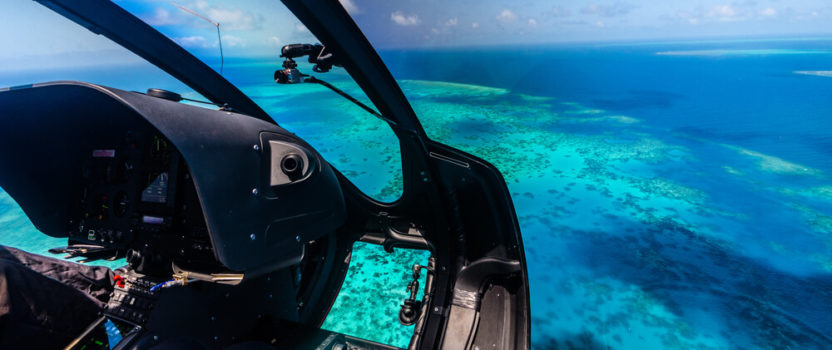Bid To Link Up Ocean Protection
The first global database of marine parks and conservation efforts is being created to help establish what is working and where more protection is urgently needed.
James Cook University researchers in Australia say the database will lead to better marine parks by helping to bridge critical gaps in marine conservation planning.
Dr Jorge G Álvarez-Romero from the ARC Centre of Excellence for Coral Reef Studies at the university led a study that looked at marine conservation planning worldwide.
‘For this study, we developed a database to document conservation planning and analysed all marine studies available in the scientific literature. It clearly shows deficiencies in the present system,’ he said.
Dr Álvarez-Romero said systematic conservation planning studies, used to determine which areas would be most useful in conserving marine biodiversity, are growing very quickly.

‘Despite this, there is no structured or reliable way of finding information on methods, trends and progress. There is little evidence of input from stakeholders. There are important gaps in geographic coverage and not enough work done on the areas most threatened,’ he said.
‘“We know the number and total extent of protected areas will increase significantly during the next few decades. The challenge is making this expansion count in terms of biodiversity conservation,’ he said.
Professor Bob Pressey, co-leader of the study, said researchers from five countries led most studies, with Australia forging the way in global marine conservation planning.

‘Australian organisations have contributed significantly to developing methods and tools that are widely used in conservation planning,’ he said.
‘Despite these advances, the varying quality and detail in the documentation of the studies limits opportunities to develop and apply best-practice principles,’ said Professor Pressey.
Dr Morena Mills, conservation scientist at Imperial College London and co-leader of The Conservation Planning Database project, said a global database to track development, implementation and impact of conservation planning is urgently needed, along with a closer analysis of the literature, and continuous and comprehensive documentation of conservation planning exercises.
‘The new database is a move towards a centralised repository of information of planning exercises and can advance conservation theory and practice,’ she said.
Professor Heather Leslie, an international leader in marine conservation science and Director of the University of Maine’s Darling Marine Center, said: ‘With this database in hand, donors and non-government organisations can identify regions and topical areas needing further work, and scientists, practitioners and policy-makers can learn from previous plans.’
‘In addition, it gives the scientific community – including peer reviewers – a means of assessing trends in conservation planning methods and applications, so that we can learn from our previous work and shape our new work accordingly,’ she said.



Leave a Reply
Your email is safe with us.